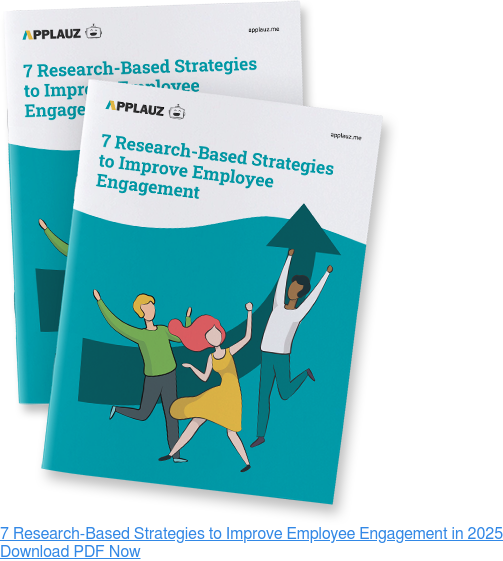Traditional wisdom says that managing stress levels is critical to maximizing emotional and mental wellbeing. Doctors and experts typically prescribe doing things like yoga, exercise, meditation, or journaling to achieve this goal.
In an article titled 4 Psychological Reasons You Feel Anxious All the Time, psychologist Nick Wignall offers some counterintuitive opinions on this conventional advice.
Wignall cautions that this standard approach to managing stress and anxiety can actually mislead people.
Sure, activities like exercise are helpful and are proven to help manage stress. But, these activities fall short in a significant way. They don't help people identify or remove the source of the tension -- i.e. what is causing their stress in the first place, what Wignall describes as stressors.
For example, if your manager is always unloading complicated tasks on your desk at 4:45 PM, that's a stressor. How your body and mind respond to it (ex. mental worry, increased heart rate, or muscle tension), that's stress.
Ultimately, the real solution to reducing stress and anxiety is to identify and better manage your stressors -- in short, learn to keep in check the things that make you feel stressed.
Wignall says, "You can do all the deep breathing and mindfulness meditation exercises, but if your life is full of stressors, you're inevitably going to feel stressed and anxious!"

 Support Employee Wellness by Controlling Stressors
Support Employee Wellness by Controlling Stressors
To that end, businesses focus wellness initiatives on activities that help reduce workplace stress, for example, initiatives like yoga classes or free healthy snacks.
Although many of these wellness approaches can be beneficial, they don't address any active stressors employees may experience.
For instance, research shows that several factors play a critical role in employees' mental and emotional wellness. And these factors create a work environment that can induce burnout.
- Excessive workload
- Job demands that exceed job resources
- Juggling roles between work and home
- Toxic organizational cultures
- Workplace conflict
- Lack of job control
- Unclear job expectations
- Lack of support & recognition
Bottom line: If a company wishes to support employee wellness holistically, it requires taking action to help manage employee stress -- but also, stressors.
The role of managers is critical
Here is where a company's team leaders, managers, and supervisors play a critical role, as improving the emotional health of employees also hinges on the careful management of the factors that are causing employees to feel stressed in the first place.
According to a Gallup study, employees who strongly agree that they feel supported by their manager are about 70% less likely to experience burnout regularly.
To be clear, eliminating all workplace stressors is not realistic. Work is stressful sometimes, and that should be expected! What great leadership and management do is help keep unnecessary stressors at a minimum. These actions also give rise to feelings of security and safety, which is a natural anxiety buffer for employees when stressors do come up.
The beauty of stressor management is that in every case, these actions are time-efficient and virtually free! The only catch is they must be done consistently.
As we've mentioned before, building a strong company culture is about being small and consistent with your efforts, rather than being big and sporadic. The same philosophy applies to employee wellness. Small and constant efforts are crucial to keeping employees mentally strong while keeping feelings of stress and anxiety at bay.
As you will see in the examples below, you can take many daily actions as a manager or supervisor to minimize stressors and ultimately support employee wellness.
 21 Simple Tips for Managers To Support Employee Wellness Today
21 Simple Tips for Managers To Support Employee Wellness Today
Carve out time for your people
Time is our most scarce and valuable resource. As such, if you take the time out of your busy schedule to connect with employees face-to-face and on a 1:1 basis, it shows your employees that you prioritize their contribution and wellbeing. According to Gallup, employees whose manager is always willing to listen to their work-related problems are 62% less likely to be burned out. And if people crave one thing above anything else, it's human connection. Face-to-face connection is a natural stress buffer; on the other hand, isolation exacerbates it.
Inquire about what stresses them
Every employee is different – for instance, some may thrive under the pressure of a heavier workload, and some may crumble. The best way to keep stressors to a minimum dead simple: Ask your employees if there is something causing them unnecessary daily stress at work. It might be something as simple as a slow program on their computer. With this feedback, look to see what's in your control and do your best to minimize these stressors where you can.
Ask how they are and truly listen
It's the simplest gestures that, when done repeatedly over time that have the most significant impact. Taking the time every day to greet your employees one by one and asking them how they are doing in a sincere way is a simple yet effective way to build connection and safety.
Let employees know you are there for them
When employees know that their manager or supervisor has their back, it creates a feeling of safety, which is a natural buffer against stress. Letting employees know you are there for them can mean expressing that you are there to help pitch in during a difficult assignment. Or simply letting them know that you are available to talk if they need to get something off their chest.

Express appreciation
Don't wait until formal evaluations to say thank you. Expressing your appreciation for your employee costs zero dollars and will go a long way. This is especially true if your expression of appreciation is spontaneous and specific to them. Did someone on your team go above and beyond and did a great job on a task? Let them know how much you appreciate – not only the outcome of their work but the effort they put in.
Educate yourself on burnout
Managers and company leaders should be trained to detect early signs of burnout, such as employee irritability, withdrawal, and fatigue. Early intervention is key to preventing excessive levels of burnout, which can lead to turnover or an extended leave of absence.
Offer autonomy and flexibility
Work is a major pillar in our lives, but it can be difficult for working professionals to juggle all the responsibilities of life. As you probably know, managers are not impervious to this reality either. Unless your company's policies state otherwise, offering some level of flexibility in terms of hours or location of work can be a very effective way to help employees manage their time and, ultimately, their mental wellbeing.
Respect boundaries
Respecting a worker's boundaries can mean not disturbing them with work during the break or lunch hour. Or not emailing or sending instant messages during evenings or weekends. Employees are entitled to their personal time and space. These boundaries are established at the beginning of a work contract and should be respected by the manager.
Offer a small token of gratitude
A small token of appreciation can be anything small and tangible – for example, a coffee or some edible treats. Taking the time to offer occasional tokens of appreciation really shows you care about your employees and are willing to go out of your way to make them feel appreciated.
Give public praise
Everyone loves receiving appreciation. However, some may value public praise even more. Giving praise to an employee for doing great work in front of the whole team can be extremely rewarding and uplifting.
Share vulnerability
A key to creating strong collaborative teams is building trust between members. Feelings of trust and safety are massive stress buffers. But building trust isn't an automatic process. It takes time, consistency, and, most importantly, vulnerability. That means sharing something about yourself (while still remaining professional), such as difficulties or obstacles you've overcome in your life.
Lighten the workload
It's not a surprise that a common work stressor is simply too much work. If one employee is doing the job of two people, for example, this is not sustainable. Stretching employees thin is a sure way to burn them out in the long run. Making sure that the team's workload is manageable is critical to minimizing the root of employee stress and burnout.
Offer a helping hand
To that end, a meaningful way to create a buffer against an overwhelming workload is to offer a helping hand. Suppose a manager rolls up their sleeves and pitches in to help. In that case, these gestures will not only alleviate employee stress but show your team that you genuinely care about their mental health and wellbeing.

Nip conflict in the bud
Some level of interpersonal conflict between team members or peers is inevitable. Yet, when coworkers are clashing, it can be a major source of stress not only for the people involved but everyone on the team. If any interpersonal conflict arises, it's wise to intervene sooner than later. The longer you wait, the more complex and difficult the situation becomes to resolve.
Take notice of employees interests
Employees want to receive praise for their work, but they also want to feel seen as people and individuals. Taking the time to get to know your employees, learning about their hobbies and interests, and letting them know you care by asking questions can feel very good. For example, if an employee says they have plans to see a movie this weekend, ask them about the film on Monday.
Ask questions
When you are in conversation with an employee, whether it's to ask how their weekend was or talking about work, always listen attentively. The best way you can do that is to ask questions. Asking questions or saying "tell me more about that," or "what was that like," or simply "tell me more!" is one of the best ways to show people that you care.
Share enthusiasm for their initiatives and ideas
When an employee comes up with a great idea or takes initiative, it's crucial to take notice and share their enthusiasm. Not every idea might be used or end up coming to fruition. But simply letting an employee know you see their effort goes a long way to creating a sense of support and wellbeing that will keep those great ideas and initiatives flowing.
Ask how you can be a better manager
Even the best managers have room for improvement. But not every employee will feel safe and secure to express feedback to their manager openly. If you want to build trust and security on your team (natural stress buffers), ask your employees how you could improve. Not only will an open conversation benefit the relationship, but you'll likely learn about what actions may be causing unnecessary stress for your employees.
Bring people together
Humans are social beings. Taking the time to bring people together even for a quick and energetic team huddle is a perfect way to foster a sense of belonging and minimize daily stress. You can participate in a fun group activity together, or even learn something new, like attend a webinar and discuss it afterwards.
Encourage break taking
Managers often set the bar for employees. For example, if you are working non-stop, your employees will feel pressure to follow in your footsteps. Taking breaks to recharge is an important part of managing daily stress and maintaining a well-balanced workday. Even if you're not big on breaks, make sure your employees are encouraged to take a breather when they feel they need to recharge.
Seek support for yourself
It's no surprise: managers also get stretched thin and are stressed themselves. When a manager finds themselves overworked, it's even more difficult for them to be available to their team for support. Managing your team's daily stressors also means making sure you are managing your stress and asking for help when you need it, so you can ultimately be there for your team when they need you.
Final Thoughts
In modern life, some level of stress is inescapable. But excessive and constant stress shouldn't be the norm – especially in the workplace. High, persistent stress levels wreak havoc on employees' minds and bodies. Ultimately, in the long term, employee stress is costly to a business.
If companies want to truly support employee mental health and wellness, they must treat the root of the problem, not just the symptoms.
This starts with leaders and managers looking honestly at workplace norms that could be driving excessive employee stress. Speaking or surveying employees is an excellent first step. And make sure to follow the tips above to ensure that employees feel psychologically safe and supported.
Combining these two efforts will ensure that your company is putting employee well-being on the priority list in a real and lasting way.


